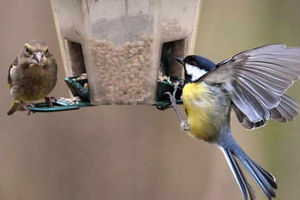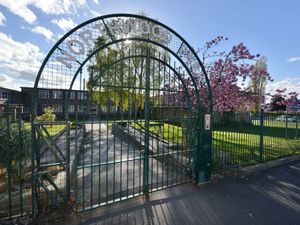Bird's eye view as feathered friends fly in
It's that time of year again - from March to July nature's feathered alarm clocks defend their territories and sing to attract a mate.

It's that time of year again - from March to July nature's feathered alarm clocks defend their territories and sing to attract a mate.
Now visitors to Northycote Farm in Wolverhampton can catch an eyeful of dozens of different birds after a new giant feeder was installed in the wildlife gardens.
Three types of species have been spotted for the first time at the sprawling site in Bushbury since the wooden structure, with half a dozen feeders hanging from it, was fitted a few weeks ago.
Alan Portlock, assistant manager at the city council-owned farm, says the feeder has so far attracted more than 60 different types of birds to the beauty spot.
"We have always had bird feeders in the wildlife gardens," he said. "We keep them in the shrubs and fruit trees but the birds weren't coming in very large numbers.
"Also, it wasn't great for spotting species because the feeders were hidden away in the trees or shrubs. Birds would come and go and you may never have see them."
According to the RSPB, songbirds time their breeding season to the warmest part of the year when there is plenty of food and lots of daylight in which to find it.
As winter turns to spring, the lengthening daylight switches male songbirds into breeding mode.
The first songsters of the season are residents such as robins and great tits, joined later on by migrants like chiffchaffs and blackcaps.
Some of the species spotted feasting on food in the Wolverhampton attraction's wildlife gardens include robins, sparrows, rooks, jays, pheasants, wren, dunnocks, great tits and woodpeckers.
* The farm in Underhill Lane, Bushbury, is open from 11am-2pm on weekdays and 10am-4pm on weekends.





